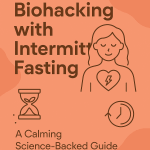Veganism has blossomed into a movement that celebrates compassion for animals, sustainability, and a dedication to better health. With more and more people choosing to embrace a plant-based lifestyle, it’s important to understand that veganism isn’t just about cutting out animal products. Instead, it’s a conscious decision to nourish your body with wholesome, nutrient-rich foods from nature’s bounty.
Plant-based diets have long been associated with various health benefits, including improved heart health, enhanced digestion, and even a lower risk of chronic diseases. If you’re seeking a way to boost your health while enjoying vibrant, flavorful meals, veganism might be your best option. From hearty breakfasts to satisfying dinners, you can enjoy a wide variety of delicious and nutritious meals that will keep your energy levels up while supporting your overall well-being.
In this blog post, we’ll explore the wonderful world of vegan recipes that cater to every meal of the day. Whether you’re a seasoned vegan or just starting on your journey, these recipes will inspire you to create dishes that are not only good for your body but also a delight for your taste buds. Let’s dive into plant-based power and discover how to nourish yourself the vegan way.
Benefits of a Plant-Based Diet
Switching to a plant-based diet is more than a lifestyle choice—it’s a decision that can transform your health in profound ways. Here are some of the most significant benefits:
# 1. Increased Fiber Intake
Plant-based foods like vegetables, fruits, legumes, and whole grains are packed with dietary fiber. Fiber helps regulate digestion, prevent constipation, and maintain healthy cholesterol levels. Consuming enough fiber can also help stabilize blood sugar levels, making you feel fuller for longer periods, which can support weight management.
For instance, starting your day with a fiber-rich bowl of oatmeal topped with fruits or snacking on a handful of nuts and seeds can help meet your daily fiber needs. The abundant variety of plant-based foods ensures you never run out of options to increase your fiber intake naturally.
# 2. Lower Cholesterol Levels
Plant-based diets are known to help lower cholesterol levels because they lack the saturated fats commonly found in animal products. When you replace animal-based foods with nutrient-dense plant alternatives, you’re giving your heart the chance to thrive. Ingredients like nuts, seeds, legumes, and whole grains provide heart-healthy fats and protein without the cholesterol that comes from meat and dairy.
Eating meals filled with leafy greens, legumes, and healthy fats like avocado or olive oil can reduce the risk of developing heart disease, making your plant-based meals a heart-friendly option.
# 3. Reduced Risk of Chronic Diseases
A well-balanced vegan diet has been shown to lower the risk of chronic diseases such as Type 2 diabetes, certain cancers, and hypertension. Plant-based foods are rich in antioxidants, vitamins, and minerals, which protect cells from damage and promote overall health.
The abundance of phytochemicals in fruits, vegetables, and grains helps neutralize harmful free radicals, potentially preventing cancer and other chronic illnesses. By embracing a plant-powered lifestyle, you’re fortifying your body’s defenses.
# 4. Weight Management
Because plant-based foods tend to be lower in calories and high in nutrients, adopting a vegan diet can be an effective way to maintain a healthy weight or even shed excess pounds. When you focus on whole, unprocessed plant foods, you naturally consume fewer empty calories and unhealthy fats.
Incorporating fiber-rich vegetables, fruits, and legumes into your meals keeps you satiated, helping you manage portion sizes without feeling deprived. Instead of turning to calorie-dense, animal-based foods, your body will feel nourished and energized from the balanced nutrition of plants.
# 5. Environmental Sustainability
Aside from the personal health benefits, plant-based eating is also kinder to the planet. Animal agriculture is a major contributor to environmental problems like deforestation, greenhouse gas emissions, and water pollution. By opting for plant-based meals, you can reduce your carbon footprint and help preserve the environment for future generations.
Supporting local farmers and opting for organic or seasonal produce also contributes to the sustainability of our ecosystems. Veganism offers a way to align personal health goals with ethical concerns about environmental conservation.
Meal Planning Tips
The key to thriving on a plant-based diet is smart meal planning. When you prepare ahead of time, you ensure that every meal is nutritious, satisfying, and delicious. Here are a few tips to get you started on planning your vegan meals:
# 1. Stock Your Pantry with Vegan Staples
Having a well-stocked pantry is essential for creating quick and wholesome meals. Make sure to keep staple items like beans, lentils, quinoa, brown rice, oats, nuts, seeds, and a variety of spices. These ingredients can form the base for countless vegan dishes, allowing you to whip up meals at any time without needing to run to the grocery store.
Plant-based protein sources like tofu, tempeh, and legumes can be prepared in multiple ways, giving you endless options for your weekly menu. Also, don’t forget to keep a variety of canned goods like tomatoes and chickpeas handy for soups, stews, and sauces.
# 2. Meal Prep for the Week
One of the best ways to stay on track with a vegan diet is to meal prep. Set aside time on the weekend to prepare meals or ingredients for the upcoming week. For example, you can cook grains like quinoa or brown rice in advance, chop vegetables for stir-fries or salads, and make batches of sauces or dressings.
Meal prepping ensures that even on busy days, you’ll have a nutritious vegan meal ready to go. Plus, it helps reduce food waste since you’ll use up ingredients before they spoil.
# 3. Incorporate Seasonal Produce
Eating seasonal produce not only ensures you’re getting the freshest and most nutrient-dense foods, but it’s also more sustainable and affordable. Visit your local farmers’ market to discover what’s in season, and plan your meals around those ingredients.
For instance, in the summer, you might focus on fresh tomatoes, zucchini, and berries, while in the winter, you can enjoy hearty root vegetables like sweet potatoes, carrots, and squashes.
# 4. Experiment with Different Flavors and Cuisines
One of the most exciting aspects of vegan cooking is the opportunity to experiment with a wide variety of flavors and cuisines. From Indian curries to Mexican tacos, there’s a world of plant-based recipes waiting to be explored. Don’t hesitate to mix spices, herbs, and condiments to create unique flavors in your dishes.
You can also explore the growing number of vegan alternatives for traditional foods like vegan cheese, plant-based milk, and meat substitutes like seitan or jackfruit. These innovations make it easier than ever to prepare familiar dishes in a vegan-friendly way.
Breakfast Recipes
A nutritious vegan breakfast sets the tone for the rest of the day. These plant-based options are not only packed with essential nutrients but also brimming with flavor and texture.
# 1. Oatmeal with Fruit and Nuts
Oatmeal is a classic breakfast staple that can be customized to suit your taste. Cook rolled oats with almond milk and top them with a medley of fresh fruits like berries, bananas, and kiwi. Add a sprinkle of chia seeds, walnuts, or almonds for a boost of protein and healthy fats. For a hint of sweetness, drizzle with maple syrup or agave nectar.
# 2. Tofu Scramble with Vegetables
For a savory start to your day, try a tofu scramble. Crumble firm tofu into a pan and sauté it with onions, bell peppers, spinach, and your favorite spices like turmeric, garlic powder, and nutritional yeast. Serve with whole-grain toast or a side of avocado for a protein-rich breakfast that will keep you full and energized.
# 3. Smoothie Bowls
Smoothie bowls are a fun and refreshing way to pack a ton of nutrients in one meal. Blend frozen berries, bananas, and spinach with a splash of almond milk, and pour the smoothie into a bowl. Top with granola, chia seeds, coconut flakes, and your favorite fruits for added texture and flavor.
# 4. Vegan Pancakes or Waffles
Who doesn’t love a weekend brunch filled with pancakes or waffles? Vegan pancakes are just as fluffy and delicious as their non-vegan counterparts. Use whole-wheat flour, almond milk, and a flaxseed “egg” (made by mixing ground flaxseed with water) to create a batter. Serve with fresh berries, vegan butter, and a drizzle of maple syrup for a mouth-watering breakfast treat.
Lunch Recipes
Lunchtime is the perfect opportunity to enjoy a light but satisfying meal that will keep you energized throughout the day. These vegan lunch ideas are easy to prepare and pack for work or school.
1. Leftovers from Dinner
There’s no shame in repurposing dinner leftovers for lunch! Stir-fries, curries, and soups often taste even better the next day, allowing the flavors to meld together. Pack your leftovers in a container and reheat them when it’s time for lunch.
2. Salad with a Vegan Protein
A well-balanced salad is a lunchtime favorite, especially when you add a good source of vegan protein. Start with a base of leafy greens like spinach or kale, and add a variety of colorful veggies like carrots, cucumbers, and bell peppers. For protein, toss in some roasted chickpeas, tofu, or quinoa. Drizzle with a homemade tahini or balsamic dressing for extra flavor.
3. Veggie Wrap or Sandwich
A veggie wrap or sandwich is a convenient lunch option that’s easy to customize. Use a whole-wheat tortilla or bread and fill it with hummus, avocado, lettuce, tomato, cucumber, and shredded carrots. Add grilled tempeh or tofu for an extra protein punch, and you have a quick, satisfying meal on the go.
4. Soup and a Side Salad
A comforting bowl of soup paired with a crisp side salad is a great midday meal. You can prepare a hearty vegan soup using ingredients like lentils, sweet potatoes, or butternut squash. Add warming spices like cumin or paprika, and finish with a drizzle of olive oil. Pair the soup with a simple green salad dressed with lemon and olive oil for a light, refreshing complement to your meal.
Dinner Recipes
Dinner is a time to unwind and enjoy a wholesome, satisfying meal. Whether you’re in the mood for something quick and easy or want to indulge in a more elaborate dish, these vegan dinner recipes will keep you nourished and satisfied.
1. Stir-Fries
Stir-fries are a go-to for busy weeknights because they’re quick to prepare, versatile, and packed with nutrients. Use a variety of colorful vegetables like broccoli, bell peppers, carrots, and snow peas. Toss them in a hot pan with sesame oil, garlic, ginger, and soy sauce. Add tofu, tempeh, or edamame for protein, and serve over brown rice or quinoa. You can also sprinkle sesame seeds or crushed peanuts on top for extra texture and flavor.
2. Curries
Curries are a delicious way to enjoy a warming, comforting meal full of bold flavors. You can make vegan curries using coconut milk, tomatoes, and spices like turmeric, cumin, coriander, and curry powder. Lentils, chickpeas, or tofu are excellent protein sources for curries, while vegetables like spinach, sweet potatoes, and cauliflower add texture and nutrients. Serve your curry with basmati rice or whole-grain naan bread for a complete, satisfying dinner.
3. Pasta Dishes
Pasta is always a crowd-pleaser, and with the right ingredients, it can be part of a nutritious vegan diet. Opt for whole-grain pasta or gluten-free alternatives like lentil or chickpea pasta for added fiber and protein. Create a rich tomato-based sauce by simmering tomatoes, garlic, onions, and fresh herbs like basil or oregano. You can also make a creamy vegan Alfredo sauce using cashews, nutritional yeast, and garlic for a decadent, dairy-free option. Toss in roasted vegetables or vegan sausage for added texture and flavor.
4. Baked Goods
While you might not associate baked goods with dinner, savory vegan baked dishes like casseroles or stuffed vegetables can make for a hearty meal. Try baking a dish of stuffed bell peppers filled with quinoa, black beans, corn, and spices, then bake them until tender. You can also prepare a vegan lasagna by layering pasta sheets with cashew ricotta, marinara sauce, and sautéed vegetables. Baked dishes like these are perfect for sharing with family and friends, and they often taste even better as leftovers the next day.
5. One-Pot Meals
One-pot meals are a lifesaver when you’re short on time but still want a wholesome dinner. Dishes like vegan chili, stews, or rice bowls can be cooked in a single pot, making cleanup a breeze. For a vegan chili, combine beans, tomatoes, peppers, and spices like cumin and chili powder, then let it simmer until the flavors meld together. Top with avocado slices, cilantro, and lime for a fresh finish. One-pot meals are perfect for meal prepping and can be easily reheated throughout the week.
Snacks and Desserts
No vegan diet is complete without a selection of healthy, satisfying snacks and indulgent desserts. Whether you’re looking for a quick pick-me-up between meals or a sweet treat to end the day, these plant-based options will satisfy your cravings.
1. Fruit and Nut Mix
A simple yet nutritious snack, a fruit and nut mix provides a perfect balance of healthy fats, fiber, and natural sugars. Combine almonds, walnuts, cashews, and your favorite dried fruits like raisins, cranberries, or apricots. You can even add dark chocolate chips or coconut flakes for a touch of indulgence. This mix is easy to prepare and can be stored in an airtight container for a grab-and-go snack.
2. Hummus and Veggies
Hummus is a delicious, protein-rich snack that pairs perfectly with fresh veggies like carrot sticks, cucumber slices, and bell pepper strips. You can make your hummus by blending chickpeas, tahini, garlic, lemon juice, and olive oil, or you can opt for store-bought varieties. Hummus is also a versatile dip that can be used in wraps, sandwiches, or as a topping for salads.
3. Homemade Energy Balls
Energy balls are an excellent snack for when you need a quick boost of energy. Made with simple ingredients like oats, nut butter, dates, and chia seeds, these no-bake treats are packed with nutrients. You can also add extras like cocoa powder, shredded coconut, or dried fruits for added flavor and texture. Energy balls are easy to store in the fridge and are perfect for a quick, satisfying snack between meals.
4. Vegan Chocolate Chip Cookies
Who doesn’t love a good chocolate chip cookie? Vegan versions of this classic dessert are just as delicious and easy to make. Use plant-based ingredients like coconut oil or vegan butter, almond milk, and flaxseed meal in place of eggs. Combine with flour, sugar, and dairy-free chocolate chips to create a chewy, decadent cookie. These cookies are great for sharing or keeping all to yourself for a sweet indulgence at the end of the day.
5. Fruit-Based Desserts
For a lighter, naturally sweet dessert option, fruit-based desserts are a great choice. You can bake apples or pears with a sprinkle of cinnamon and nuts for a cozy, fall-inspired treat. Alternatively, blend frozen bananas into a creamy, dairy-free “nice cream” and top with your favorite fruits and nuts for a refreshing, healthy dessert. Fruit-based desserts are not only delicious but also provide a boost of vitamins and antioxidants.
Conclusion
Switching to a plant-based diet doesn’t mean sacrificing flavor or variety. As we’ve explored in this blog post, vegan meals can be incredibly delicious, satisfying, and nutrient-dense. From hearty breakfasts and light lunches to comforting dinners and indulgent desserts, there’s a wealth of options for every meal of the day.
The benefits of a plant-based diet are numerous, from improved digestion and heart health to weight management and a lower risk of chronic diseases. Additionally, eating plant-based contributes to environmental sustainability, helping to reduce our impact on the planet.
By following the meal planning tips outlined here, such as stocking up on vegan staples, meal prepping, and incorporating seasonal produce, you’ll find it easier to stay on track with your vegan diet and make it a lasting lifestyle change. Don’t be afraid to experiment with different flavors and cuisines—there’s always something new to discover in the world of vegan cooking.
We encourage you to try the recipes in this blog and share your experiences. Whether you’re a long-time vegan or just starting out, these dishes will inspire you to embrace plant-based power and nourish your body in a way that feels good. For more vegan cooking inspiration and nutrition tips, explore additional resources and continue your journey toward a healthier, more sustainable lifestyle.














